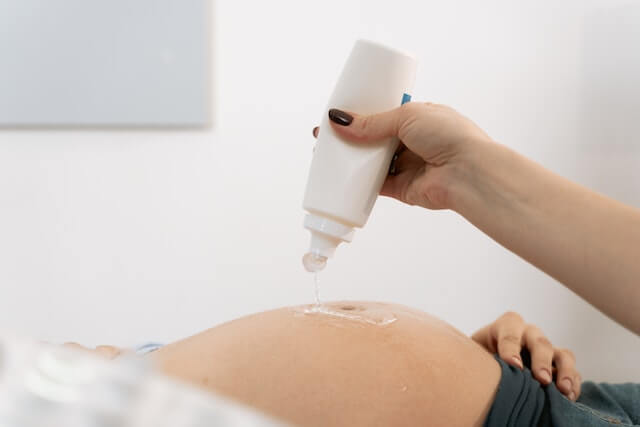Introduction
There’s nothing quite like the miracle of bringing a new life into the world, and for every woman, pregnancy is one of the most exciting and transformative experiences they will ever have. From the moment that tiny seed is planted, a woman’s body begins a remarkable journey of growth and change, as she nourishes and nurtures a new human being from within. Whether you’re a first-time mom or an experienced one, there’s always something new to learn about pregnancy, from the latest medical research to the best ways to stay healthy and comfortable throughout this amazing journey. So if you’re expecting or just curious about what’s to come, keep on reading this article and be our partner in this journey. If you have any queries don’t forget to check on our previous articles.
Week 14 of Pregnancy: An Overview
Welcome to week 14, mama-to-be! This is an exciting time in your pregnancy journey, as you’re now officially in the second trimester and your little one is growing by leaps and bounds. At this stage, your baby is roughly the size of a lemon, with all of their major organs and systems in place and starting to function. They’re also developing their own unique fingerprints and can even make facial expressions like frowning and squinting!
As for you, you may be starting to feel a renewed sense of energy and vitality now that the worst of the first trimester symptoms have passed. You might also notice that your appetite is picking up, as your body works hard to fuel your growing baby. And don’t forget to keep up with your prenatal care routine, including regular checkups with your healthcare provider and taking any recommended supplements or medications.
So take a moment to celebrate all of the amazing things that are happening in your body and your baby’s development this week. And get ready for even more exciting changes and milestones in the weeks and months to come!
Baby’s Development in week 14 of pregnancy
During week 14 of pregnancy, your baby is growing and developing at an incredible pace. At this stage, your little one is nearly 3.5 inches long and weighs about 1.5 ounces, which is roughly the size of a lemon. Some of the key developmental milestones that your baby is likely to achieve during this week include:
- Growing hair: Your baby’s hair follicles are starting to form, and they may even have a little bit of hair on their head already.
- Developing fingerprints: Your baby’s unique fingerprints are starting to form, along with other unique patterns on their skin.
- Making facial expressions: Your baby’s facial muscles are developing, which means they may be able to make frowning, squinting, and other facial expressions.
- Developing vocal cords: Your baby’s vocal cords are starting to develop, which means they may be able to make sounds like hiccups or even practice their first cries.
- Growing teeth: Your baby’s tooth buds are forming, which means their first teeth are starting to grow.
- Developing reflexes: Your baby is starting to develop reflexes, such as the ability to grasp objects and make sucking motions.
- Growing limbs: Your baby’s arms and legs are growing longer and more proportionate to the rest of their body.
In addition to these specific developmental milestones, your baby’s body is also continuing to mature and strengthen as they prepare for life outside the womb. From their muscles and bones to their heart and lungs, every part of your baby’s body is working hard to get ready for the big day when they’ll finally make their grand entrance into the world.
Woman’s body in week 14 of pregnancy
During week 14 of pregnancy, a woman’s body continues to undergo significant changes as her baby grows and develops. As for the woman’s body, some of the changes that occur during week 14 of pregnancy include:
- Growing uterus: The uterus continues to grow as the baby grows, and it’s now about the size of a grapefruit. This growth can put pressure on the woman’s bladder, which may lead to more frequent urination.
- Breast changes: The woman’s breasts may continue to feel tender or sore as they prepare for breastfeeding. The nipples and areolas may also become darker and more prominent.
- Skin changes: Some women may experience skin changes during pregnancy, such as darkening of the skin around the nipples, belly button, and genital area. This is due to an increase in hormones that stimulate pigment production in the skin.
- Weight gain: By week 14, the woman may have gained a few pounds due to the growing baby, placenta, and amniotic fluid. The amount of weight gain can vary from woman to woman, but the recommended amount for a healthy pregnancy is around 25 to 35 pounds.
- Increased energy: Many women report feeling more energetic during the second trimester, which includes week 14. This is because the placenta is now fully formed and taking over the job of producing hormones to support the pregnancy.
- Varicose veins: Some women may experience varicose veins during pregnancy due to the increased blood volume and pressure on the veins. These veins usually improve after the baby is born.
- Changes in hair and nails: Some women may experience changes in their hair and nails during pregnancy, such as increased hair growth or brittle nails. This is also due to hormonal changes in the body.
Largely, week 14 of pregnancy is an exciting time as the baby continues to grow and develop. It’s important for the woman to continue to take care of her body by eating a healthy diet, staying active, and getting plenty of rest. Regular prenatal care is also important to ensure the health and well-being of both the mother and the baby.
Checklist for week 14 of pregnancy
Congratulations on reaching week 14 of your pregnancy! We are here with a detailed checklist to help you stay on track and ensure that you and your baby are healthy:
- Schedule your next prenatal appointment: Make sure to schedule your next prenatal appointment with your healthcare provider. Regular prenatal care is important for monitoring the health of both you and your baby.
- Start thinking about maternity leave: If you are employed, start thinking about when you would like to begin your maternity leave and discuss this with your employer. Research your company’s maternity leave policy and consider your options.
- Plan for childcare: If you plan on returning to work after your baby is born, start thinking about childcare options. Look into daycare centers, nannies, and other options to find what works best for your family.
- Continue taking prenatal vitamins: Make sure you are still taking your prenatal vitamins daily to ensure that you are getting all of the necessary nutrients for a healthy pregnancy.
- Stay active: Continue to stay active during pregnancy by engaging in low-impact exercises such as walking, swimming, or prenatal yoga. Consult with your healthcare provider to ensure that the exercises you choose are safe for you and your baby.
- Consider childbirth classes: Look into childbirth classes that can help prepare you for labor and delivery. These classes can help you learn about pain management techniques, breathing exercises, and more.
- Start planning for the baby’s arrival: Start thinking about what you’ll need for the baby’s arrival, such as a crib, car seat, and clothing. Begin researching and registering for baby items that you’ll need.
- Stay hydrated: Continue to drink plenty of water and fluids to stay hydrated. This is important for your health and the health of your baby.
- Get enough sleep: Make sure to get enough sleep and rest to help you stay healthy and energized during pregnancy.
By following this checklist, you can help ensure that you and your baby stay healthy and on track during week 14 of your pregnancy. Remember to reach out to your healthcare provider if you have any concerns or questions.
Conclusion
Week 14 of pregnancy marks an important milestone in the development of the fetus and the changes happening in the mother’s body. At this point, the baby’s organs have developed and are starting to function, and their body is growing rapidly. The mother may also start to experience some relief from early pregnancy symptoms, such as nausea and fatigue. It is important for expectant mothers to continue taking care of themselves and their growing baby by eating a balanced diet, staying active, and attending regular prenatal check-ups. As the pregnancy progresses, there will be many more changes and developments to look forward to.






